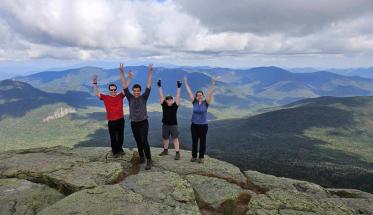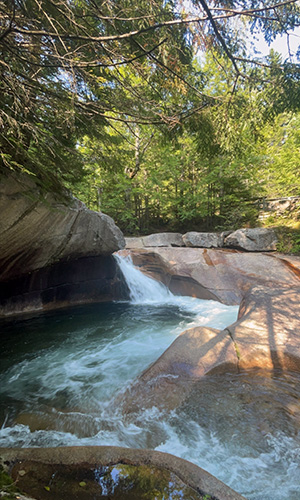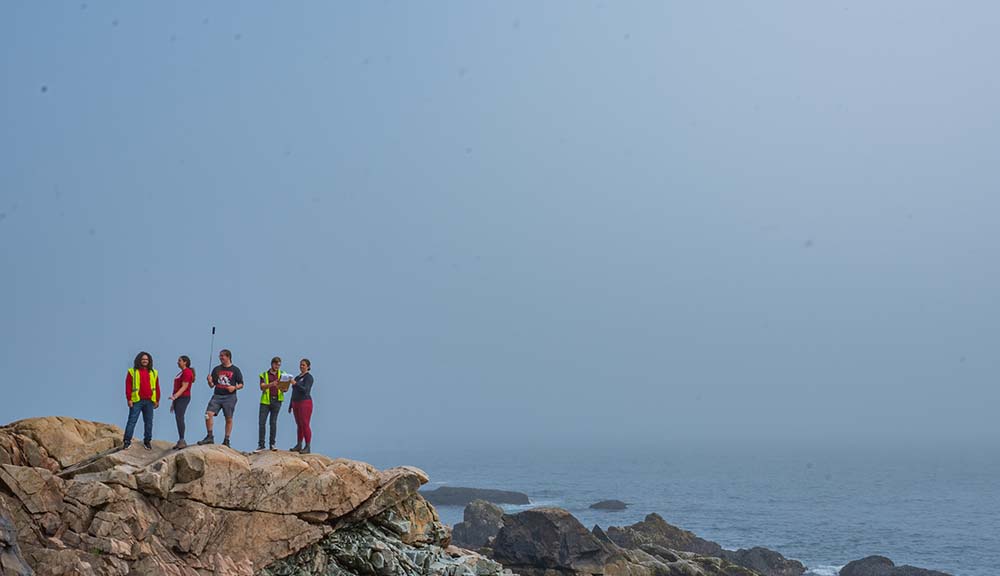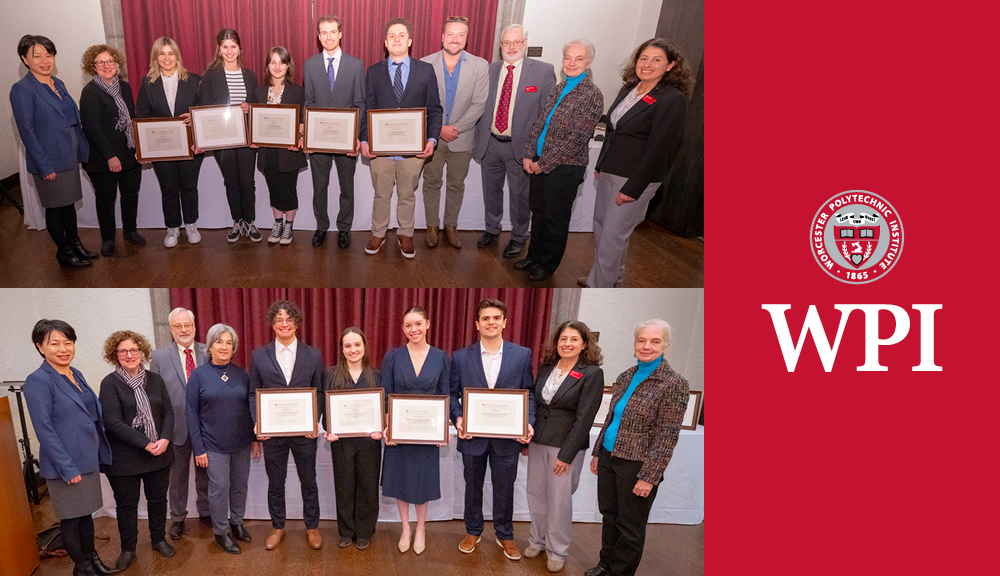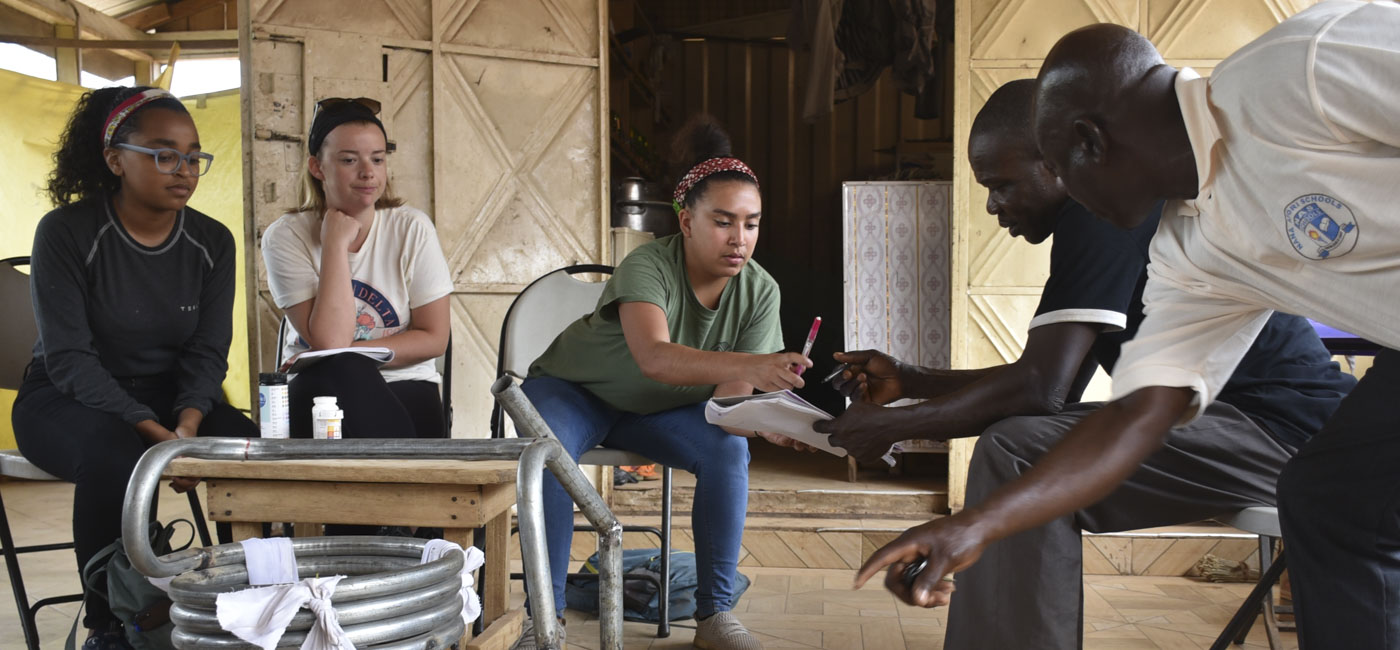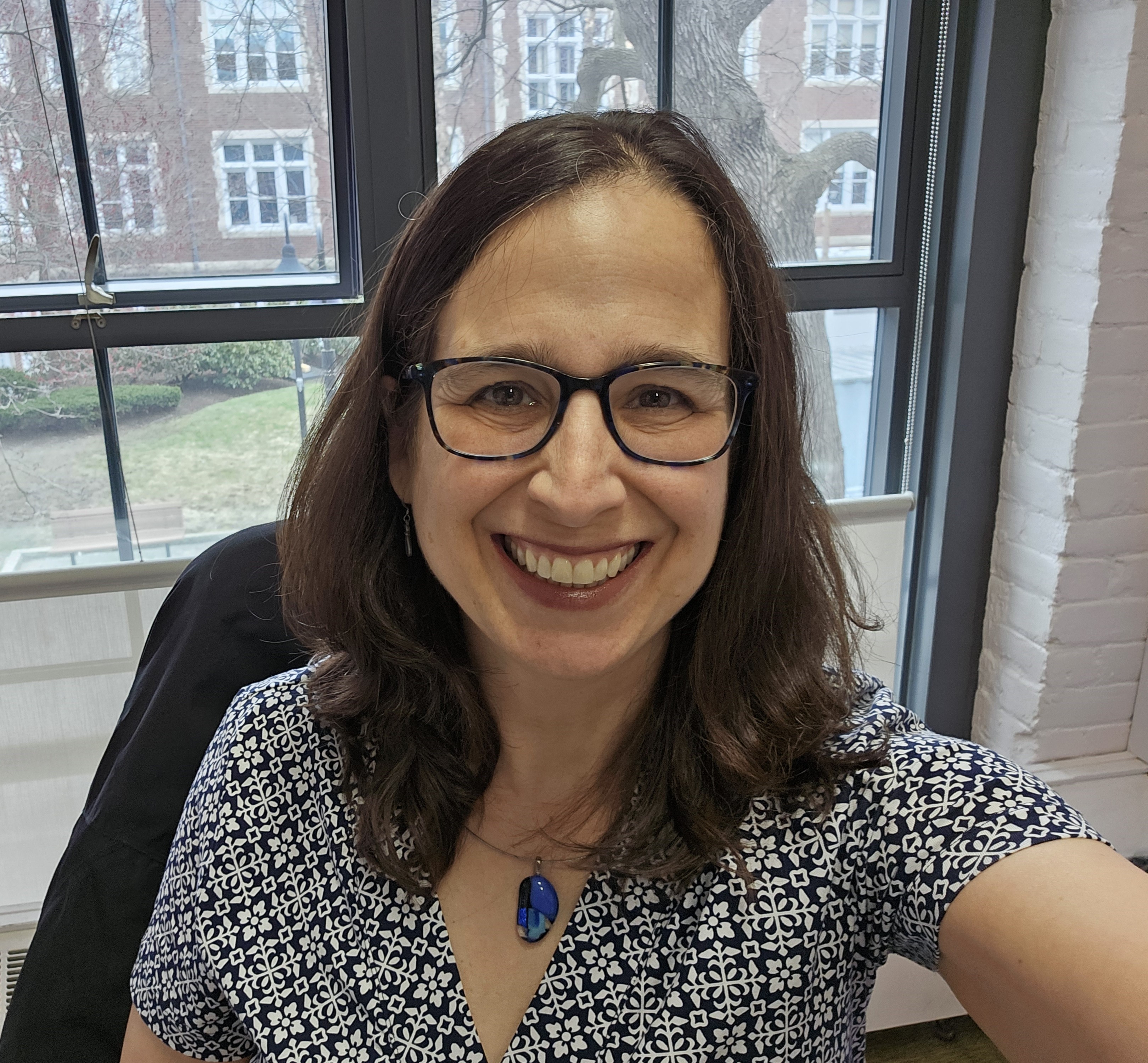One of WPI’s newest project centers is only two hours from Worcester, but students who go there get their horizons broadened nonetheless. Quite literally, in fact.
The White Mountains, New Hampshire, Project Center, located in Lincoln, hosted its first full cohort of 16 students during A-Term this year after a pilot program in 2022. The four student teams worked on projects that will help visitors to the White Mountains enjoy safe and responsible recreation.
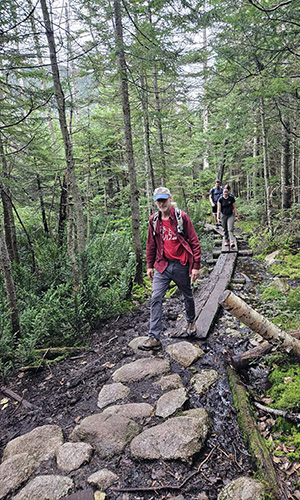
Associate Professor Seth Tuler leads a hike with students in New Hampshire.
Project center director Corey Dehner, associate professor of teaching in the Department of Integrative & Global Studies, found inspiration for the new project center during the 2021–22 academic year.
“The mental health crisis at WPI made me acutely aware of the need to help our students reconnect with nature and slow down,” Dehner says. She wanted to help establish a project center where students would be able to build their confidence, leadership abilities, and sense of community while also doing something good for the environment.
That environmental focus was one of the main reasons junior Katelyn Beirne was interested in doing her Interactive Qualifying Project (IQP) in New Hampshire this fall.
“There are a lot of really cool IQPs that focus on something cultural, but they weren’t as outdoorsy as I wanted,” says Beirne, a data science major who grew up on a small farm in Massachusetts. “I knew I wanted to get outside and do something to help the environment.”
Her IQP team developed lesson plans to teach a variety of audiences the 10 essentials to bring when hiking in the backcountry, as well as basic outdoor etiquette centered around the principles of Leave No Trace. Not only did the project let her spend lots of time outside, it also gave her the opportunity to pay forward her love of nature by helping others learn to be better environmental stewards.
The other IQP teams at the project center this fall developed conservation information specific to New Hampshire’s alpine zone that hikers can access in four languages through a QR code on trail signs; designed and set up a physical site where forestry staff will lead hands-on ecology lessons with middle school students; and created a series of short educational videos about “recreating responsibly” that the White Mountain National Forest can share with visitors.
All students at the project center also participate in a wilderness ethics certificate program that’s made possible through a collaboration between WPI, the World Trails Network, and the Waterman Fund. While environmental ethics is an emerging academic field, the certificate WPI students earn isn’t part of their official transcript, though it can go on their resume or curriculum vitae.
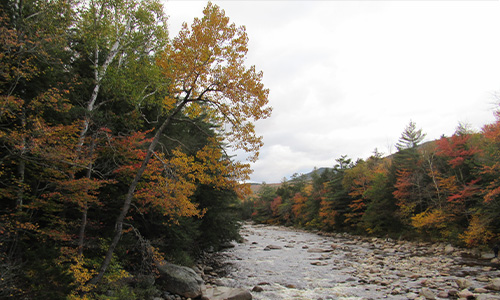
The view of the Pemigewasset River during a student hike on the Lincoln Woods Trail.
“It’s less based on professional skills and training someone for a specific career and more focused on helping students understand the externalities of whatever they do. I hope they will use this education to make informed decisions in their professions,” notes Dehner. “The goal is also to help students develop a deeper connection to nature and realize the mental health benefits of spending time in nature.”
To earn the certificate, students complete assigned readings and written reflections; participate in weekly fireside chats about various environmental topics with members of the local community; gain some perspective from the local Indigenous community; participate in a volunteer project within the national forest; complete a Leave No Trace training; and do a solo hike with reading and reflection. (Faculty are always nearby during the hike in case of an emergency.)
The work for the wilderness ethics certificate is in addition to what students do for their IQPs but it strengthens the cohort bonds, and members in the first cohort say the requirements are both manageable and enjoyable. Plus, notes junior Danielle Cook, the credential is a nice bonus that shows she did something extra, beyond her regular coursework.
